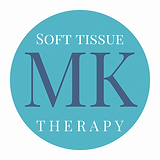What is Soft Tissue Therapy?
Soft Tissue Therapy is the manipulation of the muscles, connective tissue/fascia, tendons, ligaments and joints. A Soft Tissue Therapist helps to reduce pain, increase range of movement and enhance performance.
What are the contra-indications to Soft Tissue Therapy?
Here are just a few but if you are unsure please contact us to discuss before booking an appointment:
* acute inflammation
* open wounds
* bone fractures
* deep vein thrombosis
* bleeding disorders
* varicose veins
* contagious infections
* cardiovascular conditions
What should I wear to my session?
Please wear clothes that are comfortable and that you can stretch in. Shorts if we are working on legs and a bra that can be undone at the back instead of pulling it over your head is best. Areas that are not being worked on will be covered with towels.
How often should I have a massage?
It depends. If you are a healthy person with no injuries or chronic conditions, you can get a massage as often as you like. If you have an injury or chronic condition you would benefit from regular treatment until the issue is resolved. You might have a desk job which is causing pain or tightness in your shoulders and back and just want a treatment every month or you might be training for a marathon and need more regular treatments.
Does sports massage hurt?
The pressure used can be quite deep to achieve the positive effects so can cause some discomfort but it should never be too painful. Too much pressure will cause bruising which will have the opposite effect so it's really important that you give us feedback to help us get the best result for you. You may feel sore for a day, or you might not. It really is an individual thing.
What techniques does a Soft Tissue Therapist use?
* Therapeutic and relaxing massage techniques
* Myofascial Release (MFR)
* Soft Tissue Release (STR)
* Muscle Energy Techniques (MET, including Post Isometric Relaxation (PIR); Reciprocal Inhibition (RI)
* Position Release (PR)
* Trigger Point Therapy (TPT)
* Stretching
* Exercise guidance
